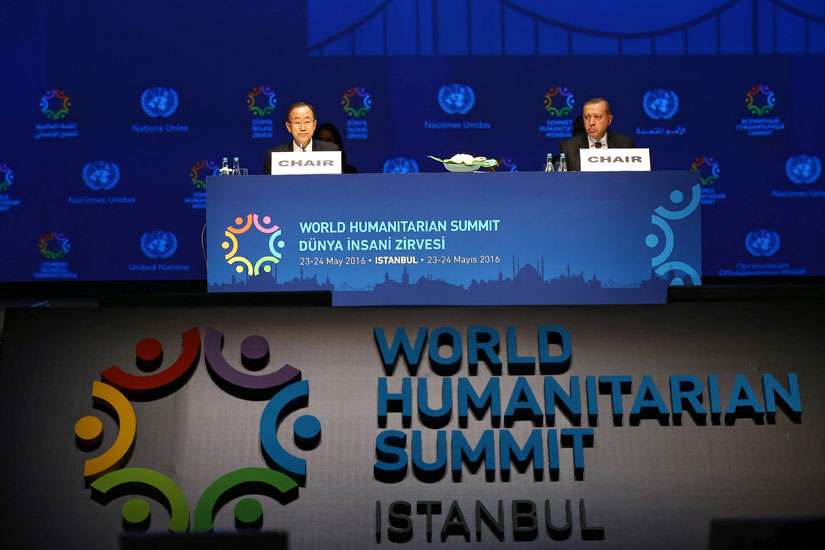“Thirty million children have lost their homes — they must not lose their education,” Kevin Watkins, executive director of the London-based Overseas Development Institute, said.
The United Nations estimates that one in four of the world’s school-age children now live in countries affected by a crisis.
The Education Cannot Wait initiative initially seeks to raise $3.85 billion to help 20,000 refugee youth over the next five years. Ultimately, it requires $11.6 billion to support 75 million children worldwide, the institute said.
Until now, education has taken the back seat to other humanitarian assistance, receiving only two per cent of funding from international donors.
“I am excited by the Education Cannot Wait fund because it really focuses on education,” said Jesuit Father Tom Smolich, international director of Jesuit Refugee Service. “JRS feels education is always part of any emergency situation and that has not always been part of the status quo.”
Aid groups such as JRS argue that “an education can also lessen a child’s vulnerability to child labor, sexual violence, recruitment into armed groups and early marriage.”
Acting in his role as U.N. special envoy for global education, Gordon Brown, former British prime minister, announced the initiative on the first day of the Istanbul gathering. Although the fund was inspired by the refugee crisis in Syria, financial assistance will be available for refugees worldwide who are being denied an education as part of “the largest population of displaced girls and boy since 1945.”
“This must be an agenda for all of us to act. We don’t need rhetoric, but resources. Today we are starting our appeal,” Brown said.
JRS and other Catholic aid organizations, such as Caritas and Catholic Relief Services, are aiding Syrian refugees in Jordan, Lebanon and Turkey as well as those who have fled to Europe and those internally displaced inside their homeland. Among the services, they provide psychosocial support to Syrian refugee children and their families, language training, and remedial education so children can integrate into formal educational programs.
However, JRS’ biggest educational program currently is in Chad and mainly assists 30,000 Darfurian refugees from Sudan. It provides them with education from preschool to higher education, including online postsecondary education.

